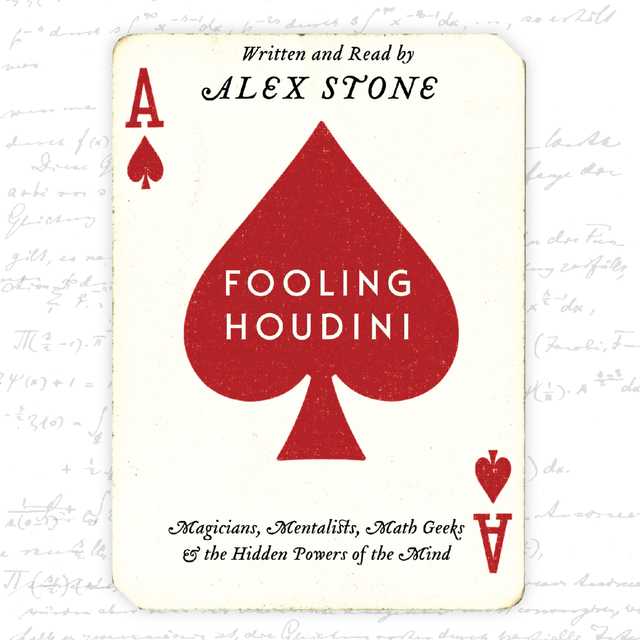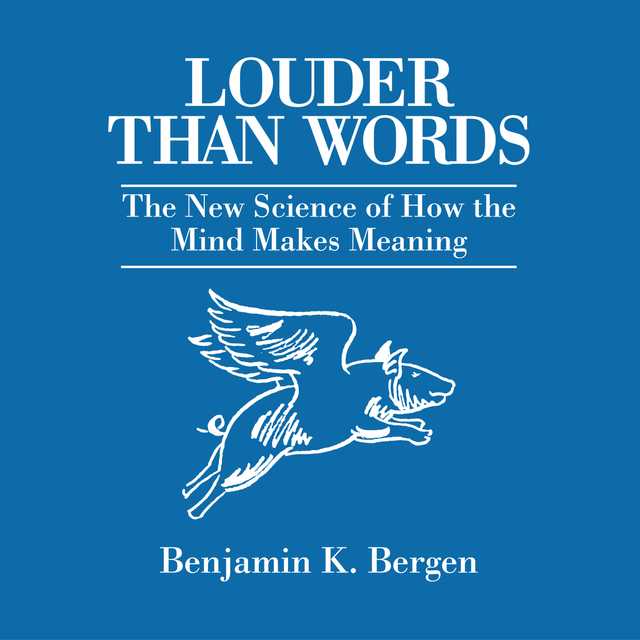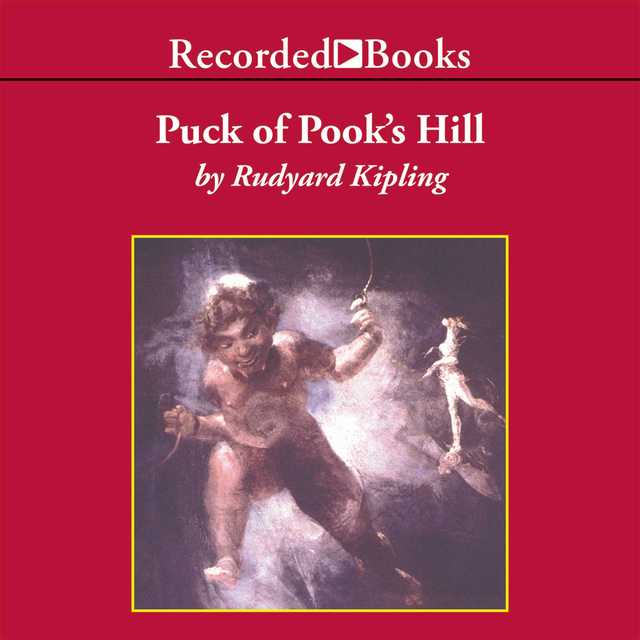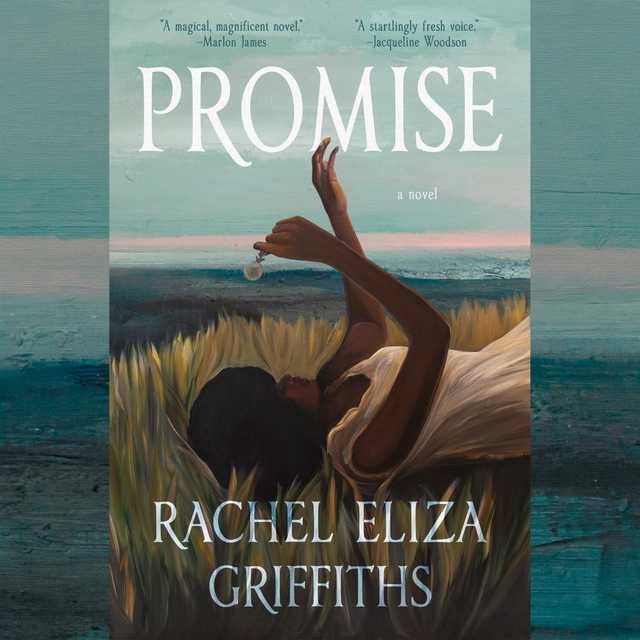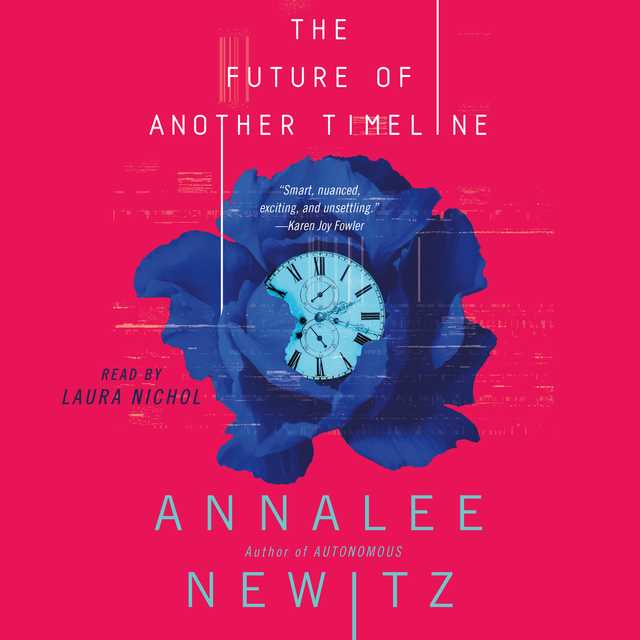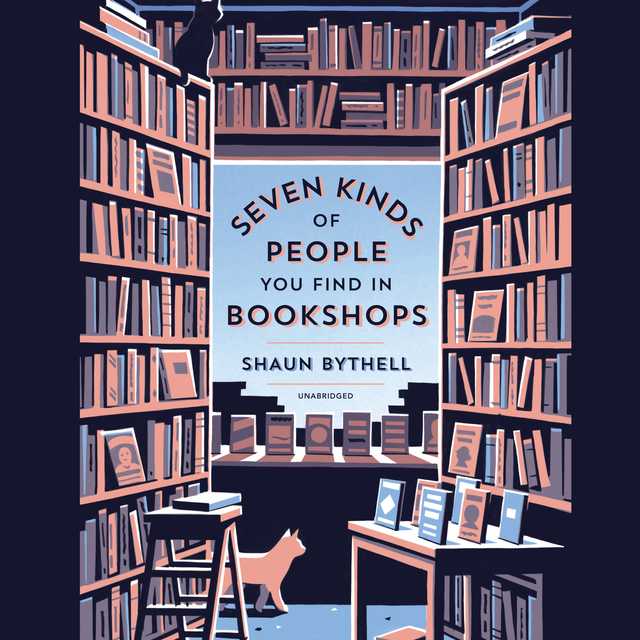Fooling Houdini Audiobook Summary
From the back rooms of New York City’s age-old magic societies to cutting-edge psychology labs, three-card monte games on Canal Street to glossy Las Vegas casinos, Fooling Houdini recounts Alex Stone’s quest to join the ranks of master magicians. As he navigates this quirky and occasionally hilarious subculture populated by brilliant eccentrics, Stone pulls back the curtain on a community shrouded in secrecy, fueled by obsession and brilliance, and organized around one overriding need: to prove one’s worth by deceiving others. But his journey is more than a tale of tricks, gigs, and geeks. By investing some of the lesser-known corners of psychology, neuroscience, physics, history, and even crime, all through the lens of trickery and illusion, Fooling Houdini arrives at a host of startling revelations about how the mind works–and why, sometimes, it doesn’t.
Other Top Audiobooks
Fooling Houdini Audiobook Narrator
Alex Stone is the narrator of Fooling Houdini audiobook that was written by Alex Stone
Alex Stone has written for The New York Times, The Wall Street Journal, Discover, Harper’s, and The New Republic. He lives in New York City.
About the Author(s) of Fooling Houdini
Alex Stone is the author of Fooling Houdini
More From the Same
- Publisher : HarperAudio
- Abraham
- American Gods [TV Tie-In]
- Dead Ringer
- House of Sand and Fog
- Prey
Fooling Houdini Full Details
| Narrator | Alex Stone |
| Length | 9 hours 14 minutes |
| Author | Alex Stone |
| Publisher | HarperAudio |
| Release date | June 19, 2012 |
| ISBN | 9780062116222 |
Additional info
The publisher of the Fooling Houdini is HarperAudio. The imprint is HarperAudio. It is supplied by HarperAudio. The ISBN-13 is 9780062116222.
Global Availability
This book is only available in the United States.
Goodreads Reviews
David
March 12, 2013
What entertainment! This is the autobiographical story of a graduate student in physics, who decided to take a detour into magic. Alex Stone starts the book with a giant flub; he competed in the "Magic Olympics" in Stockholm--and was disqualified because he hid his hands behind a table. That was, for him, "rock bottom". He decided to study, practice, attend magic workshops, and practice, practice, and practice. The book has some interesting digressions about neuroscience, and the psychology of inattention. Stone studied psychology, and came to the realization that hands are not really faster than the eye. But hands can be faster than the mind. It is also filled with fascinating accounts of magicians and their diverse approaches to magic. There is a full description of how street grifters, or "confidence men" walk through the streets of cities, attended by a "mob" that lures in victims. These con-artists are magicians of a different sort. Note the use of the word "artists", the only type of criminal given such a title.Stone worked with master magicians. He learned that magic is not just a set of tricks, but it is theater. He learned how to be a real performer. He realized that he needed a theme for his magic, and he eventually realized that his theme needed to have some relationship to physics or mathematics. Master magicians told him that the best tricks are old ones that have been long-forgotten. He did a lot of research, and found that he could take advantage of some special mathematical qualities of card decks. The last chapter describes two tricks that he invented--absolutely incredible! He throws a deck of cards into the audience, and asks the spectator nearest to where the deck fell to pick it up and cut it, again and again. Then he asks the nearest six people to pick up one card from the top of the deck. He requests the people who picked up red cards (or black cards, it doesn't matter) to stand up. Then, after some irrelevant comments and questions, he quickly tells the audience what cards they chose, in the correct order. Stone actually describes, in general terms, the secret of this trick. Even knowing the secret, it would be marvelous to see this trick in action!
Vonia
October 18, 2017
This book is the perfect companion to one of my favorites, "Sleights Of Mind". Whereas "Sleights Of Mind" is written by neuroscientists exploring the world of magic, this is written by a magician exploring magic's significant relevancy to psychology and the neurosciences. (He is, however, also a physicist. Although he left his PhD program in order to pursue magic, he still retains his passion for physics.) The two works greatly compliment each other, covering much of the same territory, but from different perspectives, making repeat information more welcome rather than repetitive. The mulled over topics include Psychology/Sociology experiments, Neurobiology imaging scans proving the importance of innate brain mechanisms to a magician's success, the effects of secrecy on an individual psyche, explanations for various magic tricks, examining the unique subculture of magicians. Numerous types are examined: street magic, stage illusions, close-up magic, card tricks, escapologists, psychics, mentalism. The great legends in magic across time, including recent sensations are all mentioned: Robert-Houdin, Dai Vernon, David Copperfield, Cardini, David Blaine, Penn & Teller, Criss Angel, Harry Blackstone, Lance Burton, Banachek, Persi Diaconis (actually, a "Mathemagician", a most fascinating title), Robert Turner (A blind magician), Val Valentino (The Masked Magician). Author and magician Alex Stone personally meet many of these, including a class from Jeff McBride. Even more amazing was the opportunity he had to meet David Bayer, Russell Crowe's hands as mathematical genius John Nash as portrayed in one of my favorite films, 2001's Academy Award winner "A Beautiful Mind". The most iconic places for magic, such as Tannen's in New York, The Magic Castle in Hollywood, California. Competitions for magicians worldwide that the author kept tabs on, whether or not he participated. Performing magic for laypersons is one thing. Entirely different, that is, from performing for dozens, even hundreds, of fellow magicians. The greatest honor for them is to fool their very own. The two he did participate in- The Magic Olympics and The International Brotherhood of Magicians- are faithfully chronicled, especially the latter, in which he trained and strained on his act for quite some time, practicing for hours and days on end, in order to perfect it. As a sample of the fascinating magic "secrets" revealed, I will share a couple of my favorites. One was the explanation of the Faro Shuffle (a prescribed, very precise Shuffle wherein the deck is cut exactly in half and the cards are interwoven perfectly). When done correctly, it enables the magician to guide the cards where he wants them- therefore, to magically guess whatever card needed. As long as he shuffles the deck, or someone else shuffles it in the "traditional" way (Riffling the cards; interlacing to halves, a few cards on top of one another). The knowledge behind this is essentially mathematical, related closely to computer sciences' binary code. Even more intriguing, it takes pretty much exactly 8 shuffles to truly randomize a deck. Any less, the cards are not random and at risk to "magic". Anymore, it really makes no difference (think about how water boils; nothing much until it boils, but afternoons that it is pretty much the same). One more. The three basics in magic based on pure trickery, from way back when, are The Fast + Loose, The Shell Game (Cups + Balls), The 3-Card Monte. Essentially, the audience is always the " victims", as they are always guaranteed to lose. They are several men operations, a team that consists of dealers, individuals that will pretend to lose, another that comments to the "target", as if they can commiserate in their losing hundreds together (even though, obviously, the " target" is the only one in reality), etcetera). No matter how well one knows the game, it is nearly impossible to win, as long as the street magicians do things right. Magic is necessarily, undeniably, intimately related to the neurosciences, biology, physics, engineering, computer sciences, psychology, sociology, and the performing arts. I commend Stone for illustrating this with such intelligence, engagement, and even flair. Very importantly, something also expressed in almost the same words in several other "magicology" books, learning the secrets behind how tricks work does not make us, as spectators, less amazed, less appreciative, less enamored, less enthralled, by magicians. Rather, by understanding it- while our cognitive processes still prevent us from seeing it live in action- we appreciate it even more. We are even more drawn in. "Magic happens not in the hands of the magician, but in the mind of the spectator." Well, of course. At its core, magic is- simply said- magicians toying with and taking advantage of our innate perceptual mechanisms. We all naturally (whether we will admit it is irrelevant) see what we want to see. We believe what we want to believe. And for most of us, that is the opportunity to be amazed. To be children again, when the possibilities were endless.
Tori
March 10, 2013
I LOVED this book!!!!!!I loved the author's self-deprecating humor, his anecdotes, and his nerdiness. I loved the subject matter. What a great read!!!!!Stone was a physics guy- working on a PhD at Columbia - and thought that magic would make him less nerdy. He learns, buys, and creates magic tricks, and eventually competes in the Magic Olympics. Who would have thought such a forum existed??? Or that there are over 100 magic conventions each year? The reader doesn't exactly learn the "secrets" of magic tricks, but is definitely more aware of the basics. Is there anyone who hasn't been awed by magic? I think I became more impressed with all the work that goes into performing magic after reading this book! I loved the thought that "magic toys with the limits of perception." As much as the physical senses tell us that something "impossible" is happening, we know that somehow, we are really just being tricked. And expectation plays a pivotal role in what we "see".Stone quotes a magician who said, "Usually when we're fooled, the mind hasn't made a mistake. It's come to the wrong conclusion for the right reason."I learned that it has been proven that you need to shuffle a deck 7 times to fully mix up the cards. And in the 1950's, the CIA hired a magician to train spies in the art of deception!Stone also contacted the author off Moonwalking with Einstein (another book I loved) to teach him how to memorize a deck of cards. It amazed me how much time and money are spent by magicians to perform so flawlessly. When Stone finally meets a woman almost by accident, I am definitely rooting for that relationship to be a success. I only wish I could see Stone perform some of the tricks he talks about. Who doesn't want to be amazed???????
Fernando
June 29, 2020
Este libro ha sido una grata sorpresa. Es muchas cosas. Por un lado, es una autobiografía, la historia de un mago que tuvo error en una competición de primer nivel (fue descalificado) y su posterior historia para resarcirse de ello. También es un libro que habla sobre la magia desde muchos puntos de vista, explicando algún truquillo que otro, así como la personalidad y relación social entre magos. Pero además, el autor estudió física, por lo que relaciona su visión personal de la magia con la cienca, explicando algún truco que se aprovecha de una propiedad matemática.Tiene, también, una componente personal y emocional muy grande, sobre todo en la última parte donde explica cómo acabó su aventura. No lo voy a contar para que lo disfrutes si lo lees.Es uno de aquellos libros que no es de divulgación que me ha encantado. Recomendado para todos los públicos.
JAMES
August 14, 2013
Arthur C. Clarke has told us that , "Any sufficiently advanced technology is indistinguishable from magic." What if someone with a scientific mind went about designing a magic routine around science? That is exactly what Alex Stone the author, Physics student and amateur magician does. This was an a excellent read for those with an interest in science and magic. A very entertaining read with a little something for everyone. I recommend it.
Mark
January 24, 2013
I've been to the Magic Castle in Los Angeles, love the magic segments on the variety shows when I was a kid (still do) and have perfected one jaw-dropping card trick that works on about 30 percent of the four-year-old population. I liked to be amazed and amused.In "Fooling Houdini," Alex Stone lifts the curtain on the world of magic. It's not a full-scale exposure. It's not a how-to or tell-all. It's a peek inside the relationship between magician and audience, between the duper and dupee, those with the secrets and those who seek to be wowed."To truly understand the art of magic and its timeless appeal, you wind up asking questions not just about how the mind works--and why sometimes it doesn't--but also about some of the most fundamental aspects of human nature," writes Stone. "Why do people take pleasure in deceiving others? How does the brain perceive the world and parse everyday experience? What are the psychological consequences of secrecy? What is reality, and how much of it do we consciously take in? How much faith can we have in our memories?"Stone plays grasshopper to a series of gurus and masters and he dives deep into various aspects of the magic and its history--the lore, the heroes, the science, the psychology, the art, the math, the quaint clubs, the characters, the goofy mentalists, the rules and how the world of magic has changed over time. We meet a raft of individuals, including Richard Turner, a card handler without equal, "a man whose prowess with a deck bordered on the supernatural." (The chapter is called "The Touch Analyst" and Stone describes some skills here that probably have to be seen in person to be believed.)Ultimately, "Fooling Houdini" is Stone's search for an improved performance self--finding a "person" inside who can hit the right note of credibility on stage. It's a tricky balance, as Stone notes, because "performing magic puts you in the awkward position of having to deceive the very people you seek to win."By the way, the hand is not quicker than eye. Read "Fooling Houdini" if you want to understand why.
Guilherme
December 01, 2020
“One of the best-kept secrets we have as magicians is that laymen would never imagine we would work so hard to fool them.” (Jamy Ian Swiss)This book is a solid piece of entertainment, with some forays and mentions of physics, math, and psychology.I was happily surprised to learn about the secretive (and hardworking) world of magicians.The author is a bit too full of himself, and the narrative does not always flow easily. But it was fun, and I recommend it.
Rick
January 23, 2021
If you're at all interested in magic and magic tricks, this is a great read. The author goes into a bit of history while describing his growing interest in the various types of magic.
Donald
March 04, 2013
I was back and forth on "Fooling Houdini" by Alex Stone, then ended up satisfied. The book was definitely a hodgepodge, part autobiography, part psychology, part history of magic, part "how to" and part brain science. Sometimes this type of book can end up being a "wiki" read, all the info from various wiki pages strung together. Alex was mostly able to avoid that tedium and weave together a unique blend of magic tales.Alex Stone explores himself in this book. Anyone can write a book about them self, but can they keep it interesting? Is the story unique enough to immerse the reader? For the most part, Alex has an engaging story. The chronicle is not "I did this", "I did that" and "Here is who I know", rather, he intermingles his personal quest with that of the history and key figures of conjuring. Although he does have lots of names to drop -- Wesley (Mentor), Jeff McBride, Eugene Burger (Mystery School), Richard Turner (blind), Armando Lucero, Paul Vigil, Juan Tamariz (Madrid School), Penn and Teller , Simon Lovell (Base Deal), Ken Schwabe (SAM president), David Roth (coin), Bob Friedhoffer (foul mouthed teacher), John Born (IBM close-up winner), Apollo Robbins (pick pocket), Eric Mead (corporate magician), Asi Wind, Benzi Train, Cheng Lin, Jack Diamond, Eric Decamps, and Doug Edwards just to name a few.The book displays an overall appreciation for the mere practice of magic, whether the advocate is professional or just a hobbyist. He never says this directly, however you come away with the benefits that attracted Alex to the field. The art of magic helps a person in showmanship, improves public speaking, is an ice breaker and is an aid to the compulsively shy. Hand-eye coordination and finger dexterity are the physical rewards in the practice of sleight of hand. The capturing and bending of attention is an intoxicating upper hand in both business and pleasure. And as is now prevalent in non-fiction, he adds a bit of the science and neurology into the mix. References to brain plasticity, eye saccades, brain regions like the visual cortex along with a discussion of recent brain studies relating to magic. All this appears to be skimmed from the current volumes of popular brain science literature. Then Alex investigates the mathematics like the De Bruijn sequences and the statistics of card shuffling, group and probability theory. In a nod to the cultish aspects and mystique of the black art, the book includes secret societies, rites of passage, masonic rituals and the ceremonial breaking of the wand. Although the book was more than a romp through the various wiki pages of magic, it did stray a bit from time to time. These included the talk of false memories and the legal system along with cell phone conversations and the dangers of distractions while driving. Then there was the usual repetition of brain evolution and the benefits to the hunter / gatherer. Yet none of this halted the forward progress. In the end the book had respect for my time as a reader.
Pjs_books
February 07, 2021
Fooling Houdini is a journey through a subculture I hadn’t even realized was a subculture. Alex Stone’s beautifully written magic memoire is a ton of fun. I laughed out loud in places, and I learned an old and important card trick that isn’t even a trick (and that even I can do—sometimes).
K.
August 17, 2012
I was hoping for some interesting tricks and connections between card-sharking and Math when I first picked up this book.What I got instead was Alex Stone's journey from dabbler in sleight of hand to his transformation into a true magician with his own style of math-derived card routine.And a fascinating journey it was. Did you know there was a Magic Olympics? Did you know many of the slight of hand masters are in danger of "recruitment" by the mafia? Did you know the masked magician on TV's Magic's Greatest Tricks Revealed was kicked out of illusionist Criss Angel's series debut party? What you won't find is an explanation of how illusionists and trick card sleight-of-hand artists do their trick. While Stone goes into deep detail about the development of his own routine, he evidently learned his lesson (he chronicles in the book the flak he got as a result of publishing an article in a mainstream magazine about magic tricks) about revealing others' secrets.What you will find is an international veritable who's who of Magicians (mentalists, illusionists, sleight of hand masters) as Stone studies various Magician traditions (and some physics and math along the way)as well a look into the subculture of magicians, con artists, clowns, and performers.I also enjoyed Stone's ruminations on the nature of the brain and how it both helps magicians (plasticity of the brain can help magicians develop an amazing sense of touch) and allows spectators to be fooled (memory bias helps us remember only the "correct" parts of the mentalists' predictions as well as misdirection of our attention making us miss obvious sleight of hand).Throughout Stone's journey is his own, geeky, half-arrogant/half-deprecating view of the people involved in this subculture, as well as his own stubborn desire to succeed as a magician. Extremely readable and interesting look at what most laypeople have no idea exists.This Book's Snack Rating: Melty cheese nerdery on waffle fries for the surprisingly satisfying and compelling taste of the magic subculture
Darrenglass
July 10, 2012
Alex Stone is a magician. And a physicist. And a science writer. But at heart he is a magician.He competed in the Magic Olympics in Stockholm in 2006 and...well, as one reads about in the opening pages of his book the outcome was not quite what he had hoped. So he decided to dive deeper into the world of magicians, and FOOLING HOUDINI takes the reader on this dive with him.Stone seems to be an eclectic person, and the book is an eclectic book. Large parts of this book are simply a personal memoir about what it is like to want to succeed at something and to confront various fears and challenges along the way -- to sacrifice other career paths and personal relationships because you want to be great. In some ways, this pursuit is completely generic which makes it both easy to understand and also one that I wasn't as interested in reading about. But other parts of the book were incredibly interesting to me. There were chunks about the history of magic or about the subculture of magicians that I found quite interesting. And the last few chapters, when Stone works with neuroscientists and mathematicians to develop new tricks, were utterly fascinating to read (and I am not simply saying this because I am friends with Dave Bayer, who plays a nontrivial role in the book). And I wish the book had been more of this.It is always hard when you read a book that is good but isn't quite what you wanted it to be. I am sure that Stone wrote the book he wanted to, and I think many readers will find it a 5-star reading experience. I certainly found it reached that at times. And he is a good enough writer that I will be curious to see what he writes about next. But this just wasn't quite the book I wanted it to be.
Most Popular Audiobooks
Frequently asked questions
Listening to audiobooks not only easy, it is also very convenient. You can listen to audiobooks on almost every device. From your laptop to your smart phone or even a smart speaker like Apple HomePod or even Alexa. Here’s how you can get started listening to audiobooks.
- 1. Download your favorite audiobook app such as Speechify.
- 2. Sign up for an account.
- 3. Browse the library for the best audiobooks and select the first one for free
- 4. Download the audiobook file to your device
- 5. Open the Speechify audiobook app and select the audiobook you want to listen to.
- 6. Adjust the playback speed and other settings to your preference.
- 7. Press play and enjoy!
While you can listen to the bestsellers on almost any device, and preferences may vary, generally smart phones are offer the most convenience factor. You could be working out, grocery shopping, or even watching your dog in the dog park on a Saturday morning.
However, most audiobook apps work across multiple devices so you can pick up that riveting new Stephen King book you started at the dog park, back on your laptop when you get back home.
Speechify is one of the best apps for audiobooks. The pricing structure is the most competitive in the market and the app is easy to use. It features the best sellers and award winning authors. Listen to your favorite books or discover new ones and listen to real voice actors read to you. Getting started is easy, the first book is free.
Research showcasing the brain health benefits of reading on a regular basis is wide-ranging and undeniable. However, research comparing the benefits of reading vs listening is much more sparse. According to professor of psychology and author Dr. Kristen Willeumier, though, there is good reason to believe that the reading experience provided by audiobooks offers many of the same brain benefits as reading a physical book.
Audiobooks are recordings of books that are read aloud by a professional voice actor. The recordings are typically available for purchase and download in digital formats such as MP3, WMA, or AAC. They can also be streamed from online services like Speechify, Audible, AppleBooks, or Spotify.
You simply download the app onto your smart phone, create your account, and in Speechify, you can choose your first book, from our vast library of best-sellers and classics, to read for free.
Audiobooks, like real books can add up over time. Here’s where you can listen to audiobooks for free. Speechify let’s you read your first best seller for free. Apart from that, we have a vast selection of free audiobooks that you can enjoy. Get the same rich experience no matter if the book was free or not.
It depends. Yes, there are free audiobooks and paid audiobooks. Speechify offers a blend of both!
It varies. The easiest way depends on a few things. The app and service you use, which device, and platform. Speechify is the easiest way to listen to audiobooks. Downloading the app is quick. It is not a large app and does not eat up space on your iPhone or Android device.
Listening to audiobooks on your smart phone, with Speechify, is the easiest way to listen to audiobooks.

